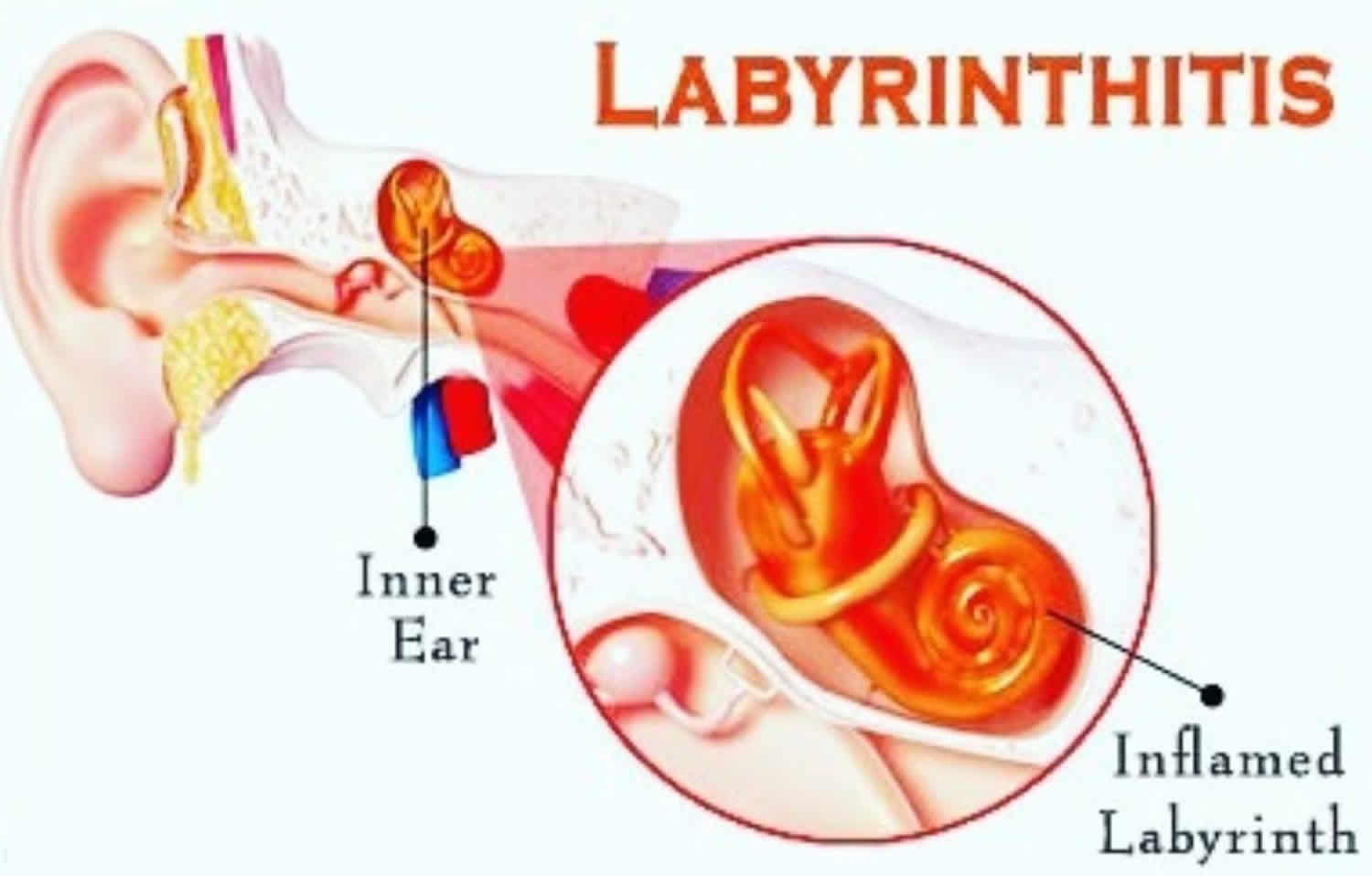Labyrinthitis The Inner Ear Condition You Need to Know About for Dizziness and Hearing Loss
 |
| Understanding Labyrinthitis and its Effects on Your Balance and Hearing, Healthnews // Depositphotos |
Find out how Labyrinthitis can knock you off your feet and what you can do about it
WHAT'S THAT Labirintitis
> Labyrinthitis is a condition that affects the inner ear and can cause symptoms such as vertigo (a sensation of spinning), hearing loss, and ringing in the ears (tinnitus). It is often caused by a viral or bacterial infection that inflames the labyrinth, which is the part of the inner ear responsible for balance and spatial orientation.
Labyrinthitis can be a temporary condition that resolves on its own, or it can be chronic and ongoing. Treatment may include medications to manage symptoms, such as anti-nausea drugs or corticosteroids, as well as physical therapy to help with balance and coordination. In some cases, surgery may be necessary to correct any structural issues in the inner ear.
What causes
Labyrinthitis is often caused by a viral or bacterial infection that affects the inner ear. Viruses that commonly cause labyrinthitis include those that cause colds, flu, and other respiratory infections, such as the herpes simplex virus, measles, mumps, and Epstein-Barr virus.
Bacterial infections that can cause labyrinthitis include those that affect the middle ear, such as otitis media or cholesteatoma. Other causes of labyrinthitis can include head injury, certain medications, allergies, and autoimmune diseases.
In some cases, the cause of labyrinthitis may not be clear, and it may be considered idiopathic labyrinthitis. This may occur in individuals who have no obvious risk factors or underlying health conditions.
The symptoms
Labyrinthitis can cause a variety of symptoms, including:
- Vertigo - a spinning sensation that may be accompanied by nausea, vomiting, and difficulty with balance
- Tinnitus - ringing, buzzing, or other noises in the ear
- Hearing loss - temporary or permanent hearing loss, often affecting one ear more than the other
- Ear pain or discomfort
- Headache
- Vision problems, such as difficulty focusing or blurred vision
- Sensitivity to light and sound
- Feeling of fullness in the ear
- Fatigue or weakness
- Difficulty concentrating or thinking clearly.
Symptoms of labyrinthitis can vary in severity and duration, and they may come and go over time. If you are experiencing any of these symptoms, it is important to consult a healthcare provider for proper diagnosis and treatment.
 |
| Labyrinthitis and its Effects on Your Balance and Hearing, Healthnews // Health Jade |
Method of treatment
The treatment of labyrinthitis depends on the severity and underlying cause of the condition. Some common treatment methods include:
- Medications: Anti-nausea drugs, such as meclizine or promethazine, can help relieve vertigo and nausea symptoms. Corticosteroids, such as prednisone, may be prescribed to reduce inflammation in the inner ear.
- Antibiotics: If the cause of labyrinthitis is a bacterial infection, antibiotics may be prescribed.
- Vestibular rehabilitation: This is a type of physical therapy that involves exercises designed to help improve balance and coordination. This may include exercises to help the brain compensate for the loss of balance function in the affected ear.
- Rest and hydration: Getting plenty of rest and staying hydrated can help the body fight off infections and reduce symptoms.
- Surgery: In rare cases where labyrinthitis is caused by a structural problem in the inner ear, surgery may be necessary to correct the issue.
It is important to consult a healthcare provider for proper diagnosis and treatment of labyrinthitis, as some symptoms may be similar to those of other conditions that require different treatments.
R E A D : Unveiling the Mystery of Kawasaki Disease: A Rare and Serious Illnes
>> Labyrinthitis is a condition that affects the inner ear and can cause a variety of symptoms, including vertigo, tinnitus, and hearing loss. It is often caused by a viral or bacterial infection, but can also be caused by head injury, certain medications, allergies, and autoimmune diseases.
Treatment of labyrinthitis depends on the severity and underlying cause of the condition. This may include medications to manage symptoms, such as anti-nausea drugs or corticosteroids, physical therapy to improve balance and coordination, rest and hydration, and in rare cases, surgery.
If you are experiencing symptoms of labyrinthitis, it is important to consult a healthcare provider for proper diagnosis and treatment.
R E A D :
- Understanding Leukemia Causes Symptoms and Treatment Options
- Understanding Bladder Cancer Symptoms: What You Need to Know
- Uncovering Pot Syndrome Symptoms, Causes, Treatment, and Prevention
- Unlocked Thyroid Causes, Symptoms, and Treatment

No comments:
Post a Comment